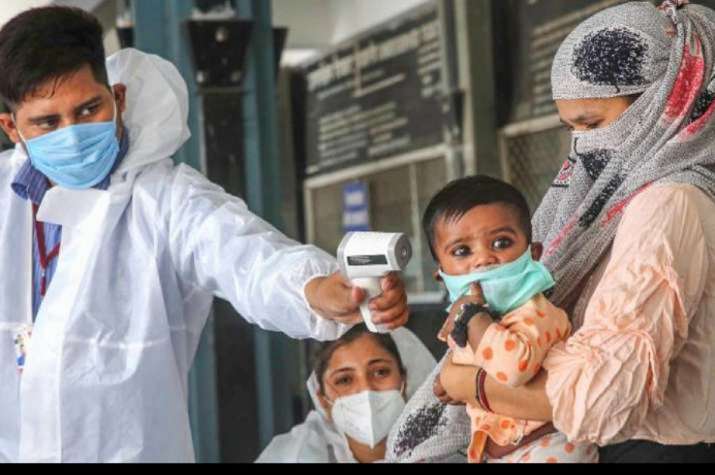
Fall in cases does not suggest end of COVID third wave, warn experts

The country’s COVID case count has declined, recording 2.38 lakh fresh cases in the last 24 hours ending at 9 am on Tuesday (January 18), about 20,000 less than the day before. Similarly, metros like Mumbai, Delhi and Kolkata have witnessed a drop, prompting some to suggest the third wave has already peaked. Health experts, however, disagree.
The cases started exploding around Christmas last year and have kept rising across the country until few days back. On Monday (January 17), Bengaluru, Delhi, Mumbai and Kolkata reported fewer cases when compared with the week before. A state Bank of India research report stated that infections in the top 15 districts of the country have declined to 37.4 per cent in January, from 67.9 per cent in December. The report, however, admitted that 10 of these top 15 districts are major cities and among them Bengaluru and Pune still have higher infection rates.
Though these major cities have crossed peaks achieved during the second wave in April-May last year, it is still not clear if the worst of the third wave is over yet.
One of the reasons for a sudden decline could be reduced testing in several states. The Union Ministry of Health and Family Welfare on Tuesday asked states to increase testing “in a strategic manner” and also asked them to speed up testing to efficiently track the spread of the virus and initiate quick action.
Yet, there are some who believe the peak of the third wave has been reached and the cases will only fall hereafter.
Also read: 1.47 lakh children have lost at least one parent to COVID since April 2020
While the case count has temporarily dropped in the metros, Thiruvananthapuram has shown a sudden spike. In Chennai and Bengaluru, the cases may have gone down over the last few days, but the count is much higher when compared over a week. Also, the trend is that Monday reports fewer cases than other week days.
Professor Manindra Agrawal of IIT Kanpur has been using the SUTRA model to track COVID-19 curve in India. Agrawal says India will witness a peak around January 15 and it would be led by metros like Delhi, Mumbai and Kolkata.
Epidemiologist Dr Chandrakant Lahariya, told CNN-News18, “The peak has almost no meaning. Take precautions if there is transmission in any setting. Peak is only for epidemiological and planning purposes. Cases are coming down as the testing approach has been changed and asymptomatic are not being tested the way they were before January 10.”
Dr Lahariya suggested paying more attention to test positivity rate and hospital bed occupancy rate.
Also read: Don’t prescribe steroids for mild cases: Centre in new COVID advisory
An immunologist said that the country as a whole may not face one wave with different waves for different cities and states. The expert said the peak may be reached around four lakh, which was the number during the second wave.
The overall share of rural districts in new cases has increased to 32.6 per cent in January, from the lowest of 14.4 per cent in December, the SBI report stated.
However, India seems better off than many countries in the west which had suffered despite better vaccination reach. In comparison to the US, the spread of coronavirus this time in India has been too low. In the US the new cases have soared by 6.9 times even though it has double-vaccinated over 80 per cent of its eligible population.
India has fully vaccinated 64 per cent of the eligible population, while 89 per cent of the eligible population have been given the first dose. Currently the 7-day median average of vaccination is 70 lakh. Rural vaccination share in total vaccination is now at 83 per cent, indicating that the rural populace may be largely protected in the current wave.
Andhra Pradesh, Delhi, Gujarat, Karnataka, Kerala, Madhya Pradesh, Telangana and Uttarakhand have already vaccinated more than 70 per cent of their eligible population with double doses. However, Punjab, Uttar Pradesh and Jharkhand are still lagging.
So, if other districts also implement strict measures and control the spread, then the national peak may come within two-three weeks from now, Soumyakanti Ghosh, the chief economic advisor at SBI said in the report.
Karnataka state minister R Ashoka said on Monday, “The experts are of the opinion that the COVID cases may reach the peak on January 25, after which it will gradually decrease. They were also of the view that the state should reduce testing from over two lakh a day to about 1.5 lakh as it does not help much.”
(With inputs from agencies)


